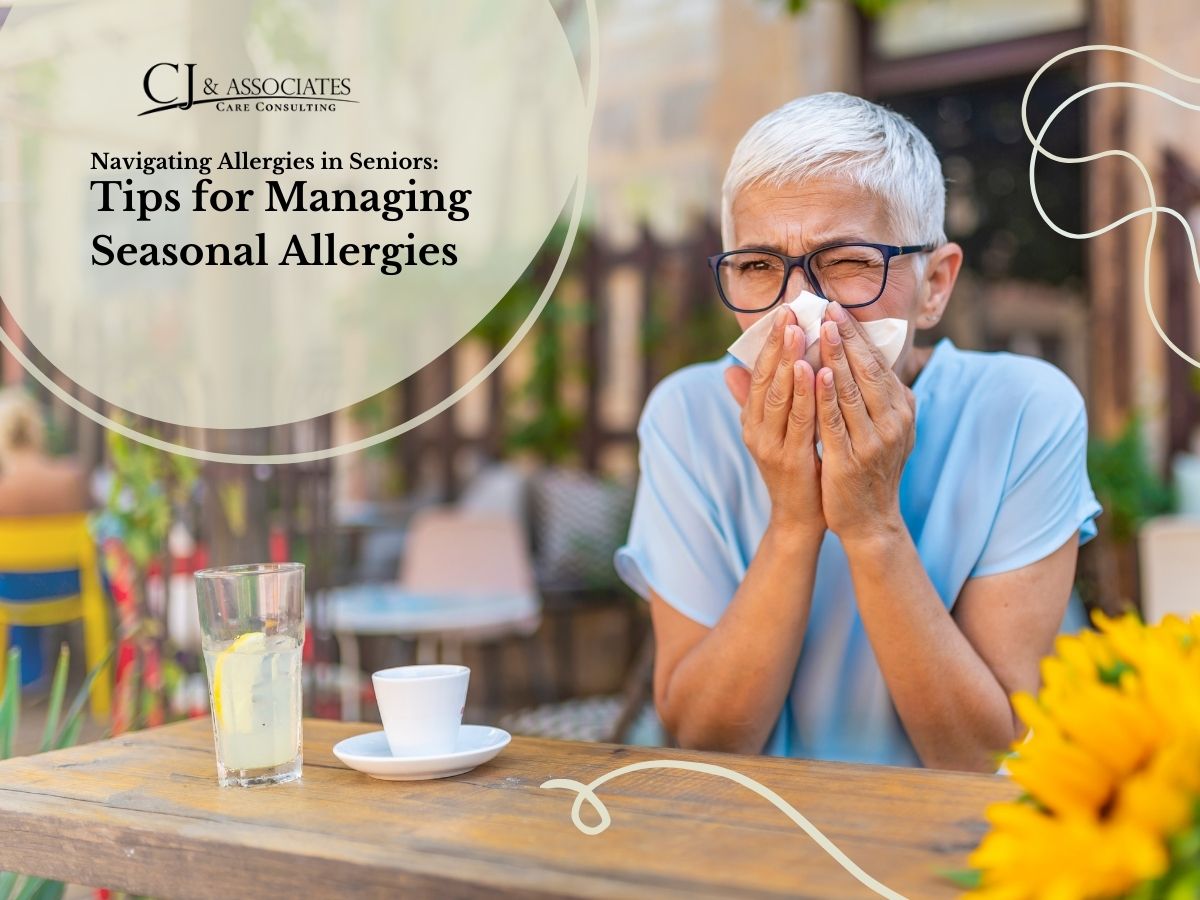As spring brings blooming flowers and warmer temperatures, it also ushers in allergy season, presenting challenges for seniors who may be more susceptible to seasonal allergies. Managing allergies effectively is crucial for seniors to maintain their health and well-being during this time of year. Here are some helpful tips tailored for seniors to navigate seasonal allergies:
-
Identify Allergy Triggers
Start by identifying common allergy triggers such as pollen, grass, mold, and dust mites. Keep track of environmental factors that exacerbate allergy symptoms and take steps to minimize exposure to these triggers.
-
Monitor Pollen Levels
Stay informed about local pollen forecasts and air quality reports. Limit outdoor activities on high pollen days, especially during peak pollen hours in the morning and early evening. Keep windows closed and use air conditioning to filter indoor air.
-
Keep Indoor Air Clean
Maintain a clean and allergen-free indoor environment by regularly vacuuming, dusting, and washing bedding. Use high-efficiency particulate air (HEPA) filters in air purifiers and HVAC systems to remove airborne allergens. Consider investing in hypoallergenic bedding and pillow covers.
-
Practice Good Hygiene
Encourage seniors to practice good hygiene habits to reduce allergen exposure. Wash hands frequently, especially after outdoor activities, to remove pollen and other allergens. Shower and change clothes after spending time outdoors to prevent bringing allergens indoors.
-
Use Nasal Irrigation
Consider using saline nasal irrigation to flush out allergens and relieve nasal congestion. Neti pots, nasal sprays, or saline nasal rinses can help clear nasal passages and alleviate allergy symptoms. Always use distilled or sterile water for nasal irrigation to avoid the risk of infection.
-
Stay Hydrated
Drink plenty of water to stay hydrated and thin mucus secretions, making it easier to expel allergens from the body. Avoid alcoholic beverages and caffeinated drinks, which can dehydrate the body and worsen allergy symptoms.
-
Consult a Healthcare Provider
Consult a healthcare provider for personalized allergy management strategies and treatment options. Seniors with underlying health conditions or compromised immune systems may require prescription medications or allergy shots to manage severe allergy symptoms effectively.
-
Consider Allergy Medications
Over-the-counter antihistamines, decongestants, and nasal corticosteroids can provide relief from allergy symptoms such as sneezing, itching, and congestion. However, consult a healthcare provider before starting any new medications, especially if you have pre-existing medical conditions or take other medications.
-
Wear Protective Gear
When outdoors, wear protective gear such as sunglasses, hats, and face masks to shield against airborne allergens. Consider wearing wrap-around sunglasses to protect the eyes from pollen and wearing a pollen mask or respirator during yard work or outdoor activities.
-
Stay Informed and Prepared
Stay informed about current allergy trends, pollen forecasts, and seasonal allergy updates. Be proactive in managing allergy symptoms and have a plan in place for dealing with flare-ups. Keep allergy medications and emergency contact information readily available in case of severe allergic reactions.
By following these tips for managing seasonal allergies, seniors can minimize discomfort, reduce allergy symptoms, and enjoy a healthier and more comfortable spring season. With proper precautions and proactive management, seniors can navigate allergy season with confidence and ease.

